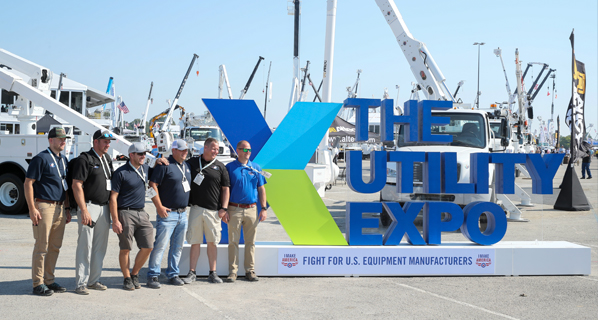Winning the Hiring War: Four Ways to Compete for Top Talent
By Jeremy Eskenazi

There was a time when Apple was known only as a fruit, the word Nike had no meaning, and Walgreen was simply a family name. All brands started unknown and had to build a reputation, a pattern of success in their industry, and a positive experience for users. All companies no matter their size go through a version of this with hopes of winning more customers and earning more loyalty for their brand than the competition. To be successful, they must show how they are different and deliver what the customer is looking for.
When companies start hiring, the same principles apply. They need to attract candidates, offer something candidates want and need, and do something better than their competitors. Companies with a smaller footprint and brands that do not produce consumer products and services often find it daunting to compete with large household names that attract thousands of candidates eager to get a big brand on their resume. It can be a challenge at times – competition is steep, and top talent has lots of choices in the market.
But it is not hopeless! Intentional planning and setting expectations for what you can offer candidates is commonly part of what’s called your “employer brand.” How you approach your strategic recruiting and talent management are important. Here are four ways that lesser-known brands can be more attractive to candidates than any other employer.
- Find your target market. It’s important to realize that not everyone wants to work for a big splashy brand. Job location, career development, flexibility, and workplace culture may be areas against which you easily compete with more well-known employer brands. Your approach to attracting these candidates may be different, but they are out there! Think about being more active in reaching out to passive candidates with your open roles. Work your networks, and consider employee referral incentives. You may not always have hundreds of resumes to present to your hiring managers. The ones you have will be more interested in what you have to offer, and using a best-practice recruiting approach may also improve your speed to hire.
- Differentiate what you offer. Do you have a great workplace culture? Do your managers really care about their employees as people who have lives outside of work? Can you offer a bigger scope of each role with more peer and leadership visibility? Can your company offer mentoring, learning opportunities, and more skill acquisition? Your golden differentiator might be knowing what you can offer that bigger brands either (1) do not, or (2) they make employees wait for during a probationary period. Clearly understand what you can offer and sell these intangible elements to convince candidates that your company can do more for their career than any other.
- Create a great candidate experience. Delivering a great candidate experience is important. If you are going to compete for top talent, every touch point a candidate has with your company is a chance to convince he or she that your company is the better place to grow their career. Effective screening and interviewing, keeping candidates informed at every step of the process, and following up quickly all contribute to a positive candidate experience. Having conversations with candidates to learn what they have accomplished instead of grilling them interrogation style leaves them feeling that your company is a more human place and helps build relationships early. This may be far better than the systematic policies and procedures of a larger employer.
- Manage expectations for all. Unrecognized employer brands face some challenges that are unavoidable – it’s important to be aware of this fact when hiring. It may take longer to find candidates, form your strategic talent-acquisition plan, or invest and execute thorough recruiting training. You may have to approach candidates for the short term. For example, you may expect that they will stay at your company only for a year or two before moving on, or that many of your candidates will come from employee referrals. You may have to invest more time selling your company to candidates and explaining what your company does. Knowing that even with a competitive offer, your company may not seem as appealing to candidates who had their heart set on proudly wearing name-brand swag helps in this process. It is a challenge, but sharing the expectations with hiring managers and candidates makes it possible to find great candidates and win them over.
As you compete, remember that Goliath didn’t win against David even though he was the heavy favorite. Consumer brands may be valuable and attract a lot of attention, but it is not the same as an employer brand, which can tell a story that is the polar opposite. There is often a halo effect in this regard – if you love the products a company makes, you assume that company is an amazing place to work. Candidates who use employer ratings and review websites to research a company’s culture may quickly come to see that some of their favorite brands have well-documented toxic work cultures. And these websites are populated by current employees, so there is no consumer brand that can counter a pattern of bad workplace experiences. It is not your place to reveal that to candidates, but it is your opportunity to capitalize on selling your lesser-known brand that will create a great place to work.
It’s okay to hire for short term and become a company that launches careers into bigger or more-known companies. It’s okay to spend more time on teaching skills and allowing employees to become mentors quickly. It’s okay to not be the biggest fish in the pond but still seek great talent. You can attract candidates with the skills you need without having to double salaries or pay more than you can budget for. You may need to follow a new path or fish with new bait, but there are great candidates out there for every company. Your best recruiting tool is differentiating what do better and selling it!
Jeremy Eskenazi is the founder of Riviera Advisors, a boutique talent-acquisition optimization consulting firm. Riviera Advisors specializes in recruitment training and strategy consulting, helping global HR leaders transform how they attract top talent. For more information, visit www.RivieraAdvisors.com.







